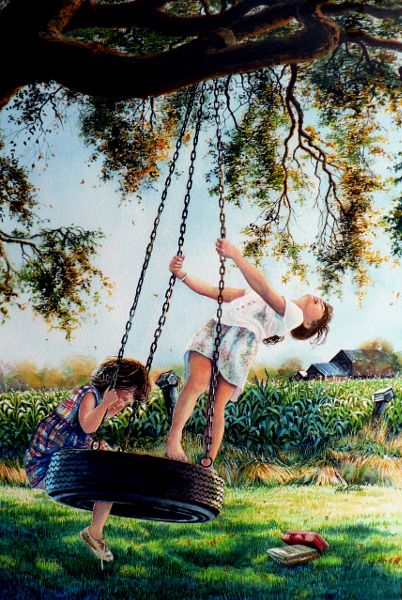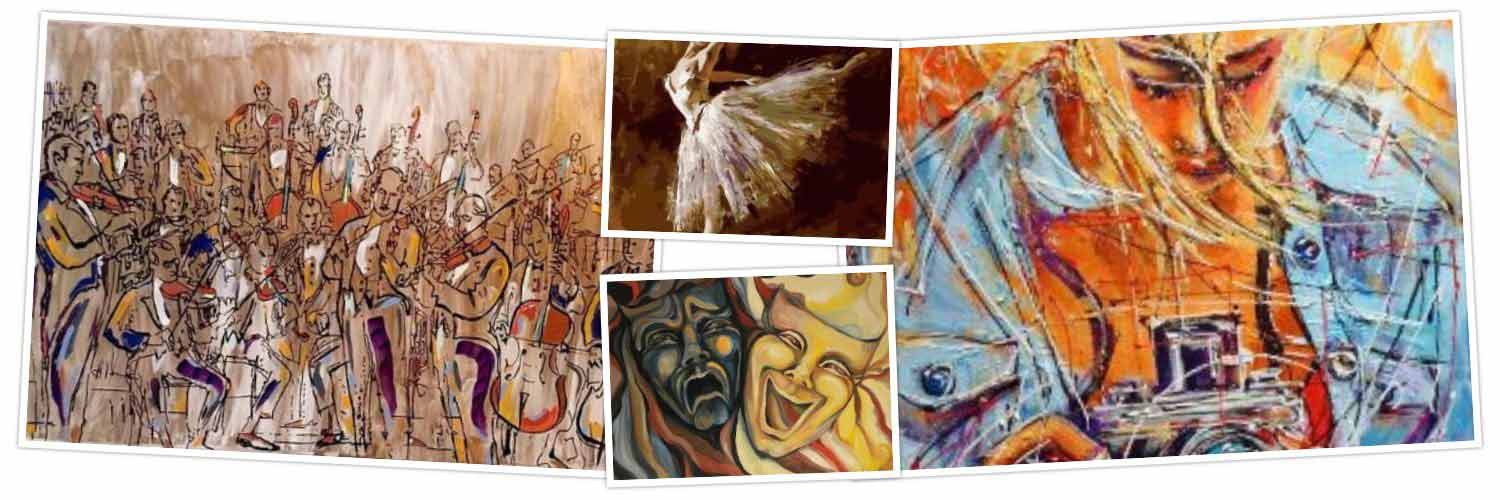Life in the Time of COVID-19, Part 27
We are grateful to Emmy Perez, the 2020 Texas Poet Laureate, for sending this perceptive, multi-stranded poem for ARTS ALIVE SAN ANTONIO’s Poetry Series. You’ll be reading it multiple times! Its companion today is After School , a painting by German-Canadian artist Hanne Lore Koehler who lives surrounded by nature. “Love of life permeates all my work,” states the artist.
Learning from home during a pandemic
By Emmy Perez

No excellence in multiple-choice
Google Classroom test-taking
can match the cumulative answers
in the heart. Vital organs
and spirit can’t be scanned or x-
rayed as evidence like their smiles
sparked behind pandemic
masks. Their eyes smile
outside after reading books and playing
video games that stand in momentarily
for the earth—systems beneath wet grass,
under trees, in leaf-cutter trails and above
the frogs leaping into mud puddles
when thunder booms as if forewarning
us of sudden ends. Sometimes those
are tadpole beginnings. Sometimes
even a mild storm’s aftermath reminds us
our very bodies are made of the solar
system, the sun shining on our skin again
and the evidence of too many mosquitoes
or the wasps’ persistence building
knocked-down nests again.
This begets this, that—
that. And if we are children
of our creator, our first god
we may call mother,
now is the time to learn how
to spread uncooked beans
smoother than stones along a table,
pluck out clods of dirt and
lift edible roots from the earth
outside when they slide out
ripe without resistance
after tending to them.
And now is the time for us
to tend to our own
resistances, listen to why
our bodies say no or not yet,
maybe or never. The body’s
knowledge is a small planet
of memories, our own burned
hands and the hands of our ancestors.
What’s the worst that can happen?
a friend asks, and so we stay home
as much as we can grateful
that home is the gravity
of our galaxy for now.

Emmy, what a wonderful poem to bring us together, to spread uncooked beans and leave us with such memorable treasures like, “And if we are children of our creator, our first god we may call mother.” And “The body’s knowledge is a small planet
of memories, our own burned hands and the hands of our ancestors.”
I didn’t want the poem to end, but rather have it take me to my seat at home and be grateful to have your words of comfort.
Lisha